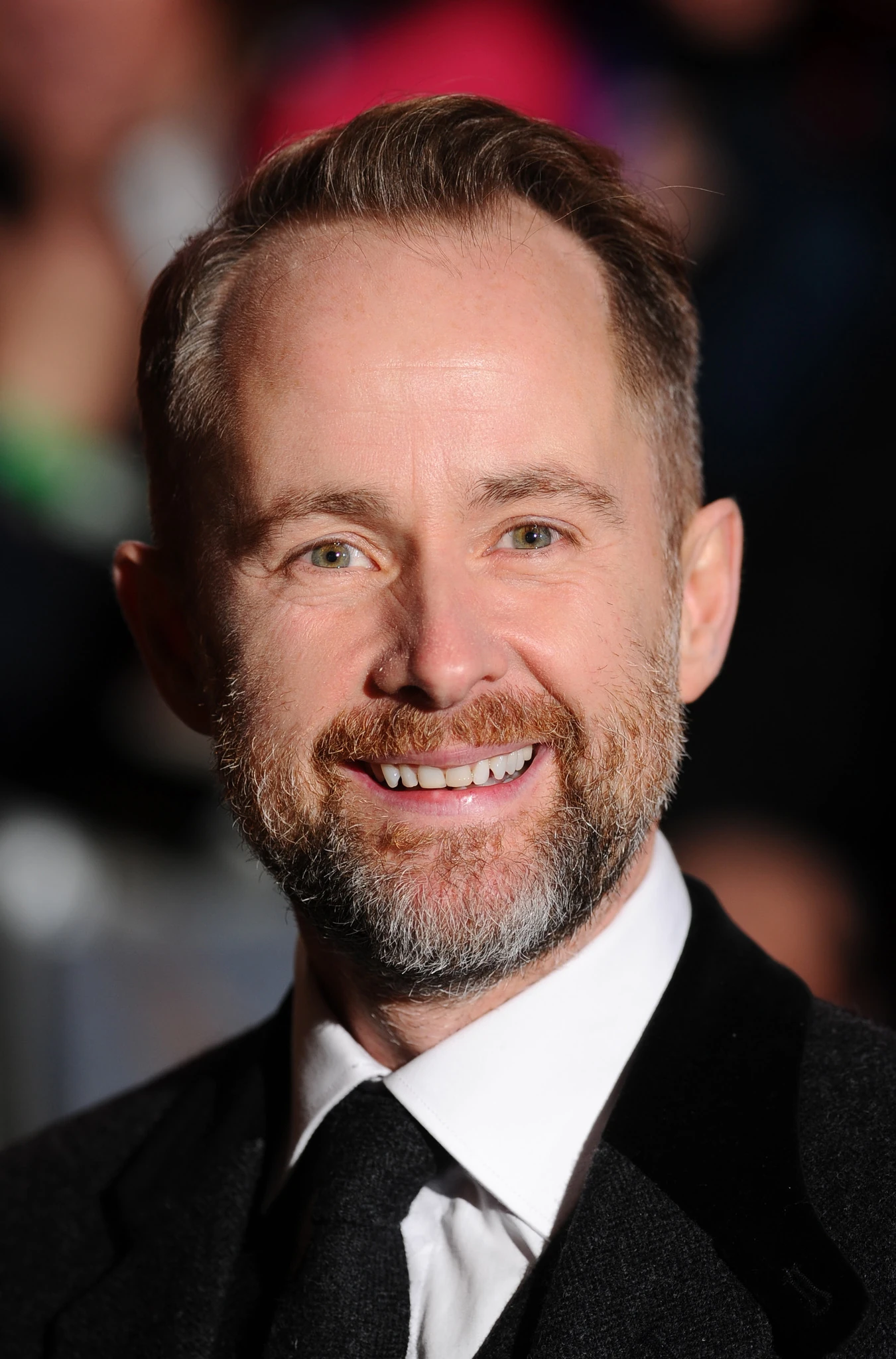Billy Boyd: From Scottish Stage to Middle-earth and Beyond
Billy Boyd has carved a distinctive place in contemporary entertainment as an actor and musician whose artistic versatility and genuine warmth have endeared him to audiences worldwide. At 56, the Glasgow native has built a multifaceted career that extends far beyond his iconic role as Pippin in Peter Jackson’s landmark “Lord of the Rings” trilogy. With his disarming charm, musical talents, and commitment to authentic performance, Boyd exemplifies the working character actor who brings depth and humanity to every project, while maintaining a grounded perspective on fame and creative pursuits.
Early Life and Artistic Foundations
Born on August 28, 1968, in Glasgow, Scotland, William “Billy” Boyd grew up in a working-class environment that initially offered few obvious pathways to an artistic career. Raised primarily by his grandmother after losing both parents when he was young—his father when Boyd was just 8 and his mother when he was 12—he developed resilience and self-reliance from an early age.
This challenging childhood in Glasgow’s Cranhill neighborhood provided Boyd with both the emotional depth and the practical perspective that would later inform his approach to acting and life in the entertainment industry. Before pursuing performance professionally, he worked as a bookbinder for seven years, developing craftsmanship skills while harboring creative ambitions.
“I think there’s something valuable about having had a ‘real job’ before acting,” Boyd reflected in a 2019 interview. “It keeps you grounded. I know what it’s like to work with my hands, to have that satisfaction of creating something tangible. That experience doesn’t leave you, even when you’re working in the more ephemeral world of performance.”
His path to acting began in earnest when, in his mid-twenties, Boyd enrolled at the Royal Scottish Academy of Music and Drama (now the Royal Conservatoire of Scotland). This formal training provided technical foundations in voice, movement, and dramatic interpretation while allowing him to explore his natural musicality. Boyd’s education embraced both classical theatrical traditions and contemporary performance techniques, creating a versatile performer comfortable across genres and mediums.
During his time at the Academy, Boyd developed particularly strong skills in movement and physical characterization, abilities that would later serve him well when portraying the nimble and energetic Pippin. His musical training, which included voice and guitar, integrated seamlessly with his acting studies, establishing the dual artistic identity that would become a hallmark of his career.
Early Career in Scottish Theater and Film
Upon graduating from the Academy in 1995, Boyd began building his professional resume in Scotland’s vibrant theater scene. He joined companies like the Traverse Theatre in Edinburgh and worked with the prestigious Royal Lyceum Theatre, developing his craft through a variety of classical and contemporary roles.
This period of Boyd’s career demonstrates his commitment to building a solid foundation as a working actor rather than pursuing immediate celebrity. He took on challenging roles in Shakespeare productions and contemporary plays, earning respect within the Scottish theater community for his versatility and work ethic.
His early screen work similarly reflected a focus on craft over fame, with appearances in Scottish television dramas and independent films. Small but memorable roles in productions like “Urban Ghost Story” (1998) and the historical drama “The Soldier’s Leap” provided valuable on-camera experience while keeping him connected to the Scottish film industry.
Throughout this formative professional period, Boyd maintained his musical interests alongside acting, performing in bands and developing the vocal skills that would later become important elements of his most famous role. This integration of music and drama established a creative approach that has defined his career—viewing performance holistically rather than compartmentalizing his artistic expressions.
Boyd’s grounding in Scottish theater and independent film created the professional reputation that would eventually lead to his life-changing audition for Peter Jackson’s ambitious adaptation of J.R.R. Tolkien’s epic fantasy trilogy.
The Lord of the Rings and Global Recognition
In 1999, Boyd auditioned for what was then considered a significant but risky project—a three-film adaptation of “The Lord of the Rings” to be shot consecutively in New Zealand by a director primarily known for horror films. At 30, with primarily theater credits to his name, Boyd was cast as Peregrin “Pippin” Took, one of the four hobbits at the center of Tolkien’s narrative.
The casting proved inspired, with Boyd bringing a perfect combination of innocence, humor, and emotional depth to Pippin’s journey from sheltered hobbit to witness of epic events. His natural Scottish accent, which he maintained for the character, helped distinguish Pippin and subtly emphasized the provincial nature of the hobbits in Tolkien’s world.
Production of the trilogy required Boyd to relocate to New Zealand for 18 months of principal photography, an immersive experience that created deep bonds among the cast. His close friendship with Dominic Monaghan, who played fellow hobbit Merry Brandybuck, became particularly notable, with their natural chemistry translating to the screen in the portrayal of one of the trilogy’s most beloved friendships.
When “The Fellowship of the Ring” was released in December 2001, followed by “The Two Towers” (2002) and “The Return of the King” (2003), the films achieved unprecedented critical and commercial success. The trilogy earned 17 Academy Awards in total, with “The Return of the King” sweeping all 11 categories for which it was nominated—a historic achievement. More importantly for Boyd’s career, the films became a global cultural phenomenon, permanently etching the characters into popular consciousness.
Boyd’s performance as Pippin earned particular praise for its emotional range. Beginning as comic relief—the foolish hobbit whose curiosity triggers disaster in Moria—Pippin’s character evolves throughout the trilogy. By “The Return of the King,” he stands in service to the steward of Gondor, witnesses traumatic warfare, and demonstrates remarkable courage. Boyd navigated this character arc with subtlety and authenticity, earning the respect of audiences and critics alike.
Perhaps the most memorable demonstration of Boyd’s artistic versatility within the trilogy came in “The Return of the King,” when Pippin sings “The Edge of Night” (also known as “Pippin’s Song”) at the request of the grief-stricken Steward Denethor. Boyd composed the haunting melody himself, setting Tolkien’s lyrics to music that poignantly contrasts with the violent preparations for battle occurring simultaneously. This scene, intercut with Faramir’s doomed cavalry charge, remains one of the trilogy’s most powerful moments, showcasing Boyd’s ability to convey complex emotion through music.
The unprecedented success of “The Lord of the Rings” transformed Boyd from a respected Scottish actor to an internationally recognized figure, bringing both opportunities and challenges as he navigated his post-Middle-earth career.
Musical Pursuits and Post-Rings Career
Following the global phenomenon of “The Lord of the Rings,” Boyd made deliberate choices to build a sustainable and creatively fulfilling career rather than pursuing mainstream Hollywood stardom. He returned to his roots in independent film and theater while expanding his musical endeavors, creating a diverse portfolio of projects unified by personal interest rather than commercial calculation.
In 2006, Boyd formed the band Beecake, serving as lead vocalist and guitarist. The group, named after a friend’s discovery of a cake covered in bees, has released several albums including “Soul Swimming” (2010), “Blue Sky Paradise” (2012), and “The Nothing” (2013). Their sound blends alternative rock with folk influences, showcasing Boyd’s warm vocal tone and thoughtful lyrics. While never achieving mainstream commercial success, Beecake has developed a dedicated following and provides Boyd with a creative outlet distinct from his acting work.
His musical contributions to “The Lord of the Rings” extended beyond “Pippin’s Song” to include collaboration with fellow cast members on songs for the film’s extended editions and cast albums. Most notably, Boyd wrote and performed “The Last Goodbye,” the closing credits song for the final installment of “The Hobbit” trilogy in 2014. This poignant ballad provided emotional closure not only for “The Hobbit” but for Peter Jackson’s entire six-film Middle-earth saga, allowing Boyd to bookend the massive cinematic undertaking with his musical sensitivity.
On screen, Boyd has deliberately selected diverse roles that challenge audiences’ associations with Pippin. He appeared as Glen, the sympathetic bathroom attendant in the psychological thriller “Seed of Chucky” (2004), demonstrated romantic comedy charm in “Saving Grace” (2002), and took on dramatic roles in independent films like “On a Clear Day” (2005).
His television work has included guest appearances on popular series like “Grey’s Anatomy,” voice work in animations including “Doomed: A Call to Heroism,” and a recurring role in the third season of the drama series “Outlander”—a production that returned him to his Scottish roots. In 2018, he appeared in the acclaimed film “Tell It to the Bees,” further demonstrating his continued commitment to thoughtful independent cinema.
Throughout these varied projects, Boyd has maintained connections to theater, occasionally returning to the stage in Scotland and elsewhere. His approach to career management reflects a prioritization of artistic interest and life balance over celebrity maintenance—choices that have earned him respect within the industry even as they kept him somewhat removed from Hollywood’s mainstream.
Personal Life and Community Engagement
Beyond his professional pursuits, Boyd has cultivated a personal life characterized by normalcy and stability—rare qualities in an industry often defined by excess and public drama. He married Alison McKinnon in 2010, and the couple has one son, Jack, born in 2006. Boyd has spoken about the importance of maintaining a grounded family life, often choosing projects that allow him to remain close to home in Scotland rather than pursuing roles that would require extended absences.
This prioritization of personal connections extends to his longtime friendships with “The Lord of the Rings” castmates, particularly Dominic Monaghan, with whom he hosts the podcast “The Friendship Onion.” Launched in 2021, the series features the pair discussing their experiences filming the trilogy, interviewing fellow cast members and crew, and exploring their ongoing friendship. The podcast’s popularity demonstrates the enduring public interest in the films and the authentic bonds they created among performers.
Boyd has maintained active engagement with the fan communities that emerged from “The Lord of the Rings,” regularly appearing at conventions and special events. Unlike some actors who distance themselves from career-defining roles, he has embraced Pippin’s significance in popular culture while gently encouraging fans to explore his other work as well.
“The thing about the ‘Rings’ fans is they’re genuinely lovely people,” Boyd told Empire Magazine in 2021. “They love these stories because they’re about friendship, courage, and perseverance—and those values tend to attract good-hearted people. So meeting fans is almost always a joyful experience.”
His hobbies and interests outside performance reflect an active lifestyle; he is an avid surfer, enjoys martial arts, and has participated in various charitable sporting events. Boyd has supported several charitable causes throughout his career, including organizations focused on children’s health, environmental conservation, and the arts in Scotland.
In interviews, Boyd demonstrates the same unpretentious charm that endeared Pippin to audiences, displaying genuine appreciation for his opportunities while maintaining the perspective of someone who entered the entertainment industry relatively late and experienced life outside its bubble.
Artistic Approach and Persona
What distinguishes Billy Boyd within the entertainment landscape is his integration of multiple artistic disciplines and his authentically grounded public persona. Unlike performers who present carefully constructed celebrity images, Boyd projects an unaffected enthusiasm for his creative work alongside a refreshing self-awareness about fame and its limitations.
As an actor, he brings a physical precision and emotional honesty to his performances that reflect his theatrical training. Directors have noted his technical reliability—hitting marks, maintaining consistency across takes—while fellow actors praise his generosity and collaborative spirit. These qualities have made him a valued ensemble player in projects of varied scales and styles.
His approach to music similarly emphasizes authenticity over commercial calculation. Whether performing with Beecake or creating songs for films, Boyd prioritizes emotional resonance and musical integrity over mainstream appeal. This artistic sincerity has earned him respect within both the acting and music communities, even as it has kept him somewhat outside the celebrity mainstream.
Critics and colleagues have noted Boyd’s particular skill at balancing humor and pathos, an ability showcased most prominently in Pippin’s journey but evident throughout his work. This emotional dexterity makes him especially effective in roles that require dramatic transformation or complex characterization within limited screen time.
Perhaps most significantly, Boyd represents a model of sustainable creativity in an industry often defined by extremes. Neither a major Hollywood star nor a struggling artist, he has instead created a career characterized by consistent work, artistic satisfaction, and life balance—an approach that reflects both his Scottish pragmatism and his late entry into professional performance.
Legacy and Continuing Influence
At 56, Billy Boyd occupies a distinctive position in contemporary entertainment as both a globally recognized figure from one of cinema’s most successful franchises and a working character actor/musician pursuing diverse creative interests. This dual identity—simultaneously famous and under-the-radar—has allowed him to navigate the entertainment industry on largely his own terms.
His portrayal of Pippin has secured a permanent place in film history, with new generations discovering “The Lord of the Rings” trilogy through streaming platforms and special theatrical re-releases. Film scholars have increasingly recognized the technical and emotional accomplishments of these films, with Boyd’s performance regularly cited for its skillful balance of comedy, vulnerability, and growth.
Beyond specific roles, Boyd’s career offers a template for artistic longevity that prioritizes versatility and personal fulfillment over celebrity maintenance. In an industry often focused on youth and overnight success, his trajectory—beginning professional training in his mid-twenties, achieving his breakthrough role at 30, and building a sustainable career across multiple disciplines—provides an alternative model of creative development.
For aspiring performers from working-class backgrounds or regions outside entertainment hubs, Boyd’s journey demonstrates the potential for success based on craft and authenticity rather than industry connections or conventional career paths. His continued association with Scotland, both personally and professionally, reflects a commitment to cultural roots increasingly rare among internationally recognized performers.
Most recently, Boyd has embraced digital platforms as new creative outlets, not only through “The Friendship Onion” podcast but also through social media engagement that extends his relationship with fans. These ventures suggest an artist continuously adapting to changing media landscapes while maintaining consistent creative values.
Conclusion: The Authentic Artist
What emerges from examination of Billy Boyd’s career and persona is a portrait of authentic artistry in an industry often characterized by artifice. From his early theater work in Scotland through global fame in “The Lord of the Rings” and his subsequent diverse creative projects, Boyd has maintained a consistent artistic identity rooted in craftsmanship, emotional truth, and unpretentious enthusiasm.
His journey represents a particularly satisfying narrative within entertainment—the skilled performer who receives life-changing recognition relatively late, handles fame with grace, and leverages opportunities into a sustainable creative life rather than burning brightly and briefly. While never reaching the commercial heights that followed his Middle-earth adventure, Boyd has created something potentially more valuable: a career defined by creative fulfillment and personal integrity.
As he continues performing, recording, and engaging with fans across multiple platforms, Boyd exemplifies the working artist who measures success not by fame or fortune but by the quality of work and the richness of creative and personal relationships. For the millions who first encountered him as the foolish but courageous hobbit Pippin, this authentic approach to art and life seems entirely fitting—the real-world embodiment of the humble heroism Tolkien celebrated in his beloved stories.








